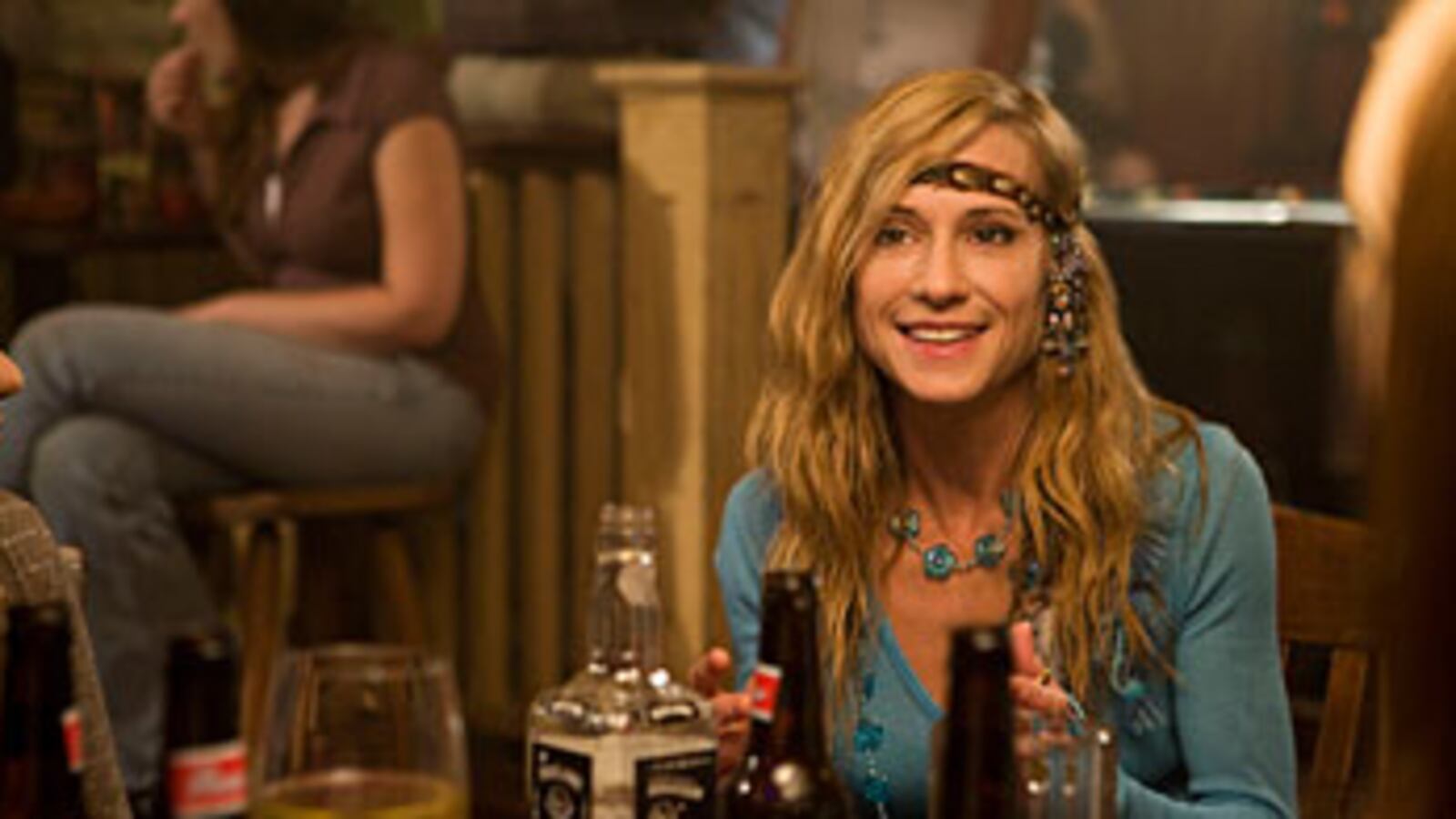
Holly Hunter made a name for herself as someone who isn’t afraid to speak her mind (and kick some major ass) when she first starred as the strong, ballsy Jane Craig in Broadcast News. Now, 20-plus years and an Academy Award later, the 50-year-old Georgia native is playing her most complex role yet: Grace Hanadarko, an Oklahoma City police detective who lives hard, drinks hard, and sleeps around, but still has an innate sense for solving crime—on television. Specifically, TNT.
Saving Grace returns for the rest of its second season this Monday. Hunter spoke to The Daily Beast about why the explosive Grace really does love herself (and why her guardian angel actually needs her), working with guest star Christina Ricci, and how cable television changed her career.
“I just never look at Grace as somebody who’s like a true self-destructive chick.”
The most fascinating relationship on Saving Grace is easily Grace’s relationship with her guardian angel, Earl.
Earl is a great foil to Grace. He’s a foil. In some ways, one of the things that we have explored in the second season is the amount of love that he feels for things that he cannot do, or that he cannot partake in; in other words, the extremity of human behavior that Grace engages in, and the joy that she takes from those behaviors, and the intense love that Grace feels, I think, you know, Earl is envious of, and Earl is admiring of.
And I think that in this second season, something that we were interested in talking about was, did he really see her? That he was brought to her for a reason. Not just that she needs an angel, but that Earl needs Grace.
So you don’t think their relationship is spiritual, or religious even?
I mean, you know, of course that was involved in the initial conversation that I had with [creator] Nancy Miller. I think that the richness of the relationship has absolutely nothing to do with religion. And that’s not even something that I’m interested in talking about as an actress.
Grace seemed to grow a lot last season.
Well, I think that what I’m getting to explore is really the heart of a woman. And I can’t say that about everything that I’ve done. Or maybe I’ve explored the heart of a woman, but it’s been like skating on ice. You know, often you don’t get to swim in it. It’s an in-depth exploration, and kind of a close-up look at a woman, at all the different ways that she… I think in a way it’s about love. You know? It’s about love… all the different ways that she loves and whether those loves are acceptable or not. She has had great physical love for (her former partner) Hamm, who has been a married man. That’s not an acceptable expression of love. But Grace has felt it and acted on it. The love that she has for her car, the love that she has for her dog, the love that she has for her job, for being a cop. You know, like when I talk about the heart of a cop, I think that’s something that Grace Hanadarko feels with the core of her.
Do you think she loves herself, or is that something she has yet to discover?
In a way, I think she revels in herself. I mean, I think there’s a self-revelry to a degree. When you can really, really, for example, when you can really like celebrate, when you can really go out and just like go crazy, I mean, there’s a bacchanalian thing there that’s not without love. I mean, I don’t think that it’s, I just never look at Grace as somebody who’s like a true self-destructive chick. I kind of just don’t think of her quite like that.
Tell me about working with Christina Ricci—was it hard for her to fit in with such a well-established ensemble cast?
Well with Christina, she’s very intelligent. She has great ideas. She has a great sense of character. So she comes in with that intelligence, which is welcomed, and very much respected. And she was fun. And she’s professional. I mean in no way was it anything but fantastic for Christina to come into an ensemble that’s well-established because it’s great for the story to have new conflicts, to have new characters, and at the same time, I feel so strongly that the heart of the show lies in the continuing development of the core characters. So that’s what makes Christina exciting. Because the core characters have to continue to be developed.
Do you think there are more opportunities for women to play the roles they want to play than there are in movies these days? Especially for more mature women?
I would say without question. And this is a new thing, you know. I would say that really, Michael Chiklis and James Gandolfini kind of started the ball rolling with The Shield and The Sopranos. These anti-heroic men who were on these, who were on tremendously successful cable shows where they were telling stories that people wanted to watch.
And then, you know, it translated over to [shows like] Saving Grace and Glenn Close in Damages, where you have anti-heroic women, very complex women, who are not necessarily protagonists. Although I think Grace is a protagonist, but she’s a very complex woman who does many, many things that are flawed. Without being harshly judged.
But there used to be a sort of stigma when movie actor returned to television, or starred in television series.
Well, it’s an interesting question, because it’s changed tremendously, and kind of completely. But when I did Broadcast News in 1987, the very next thing that I did was a TV movie of the week, which was called Roe vs. Wade. I mean, I have always had a feature film career and a television career, but not series television. I think that was a stigma that has remained until now, because of cable.
I mean, cable changed everything. It’s kind of like exciting and new. Cable has changed everything. It’s a pretty radical thing that’s happened to television.
Joel Keller is the editor in chief of the AOL blog TV Squad. His writing about pop culture, food, and travel has appeared in the New York Times, New Jersey Monthly, Cinematical and Radar Online.





